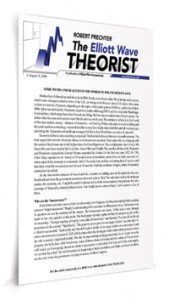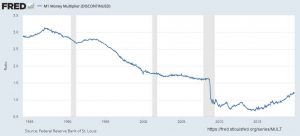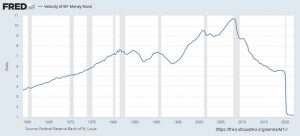Since financial stocks make up 14% of the S&P 500 Index, it is difficult to sustain a rally without strength in banks and financial services firms. With the Fed and ECB opening up the liquidity fire hydrant in late December 2011, bank stocks experienced another in a series of monster bailout rallies. As outlined below, the Financials Select Sector ETF (XLF) may be poised to give back some gains over the coming sessions based on numerous factors including reduced odds of QE3. Unfortunately in the debt-saddled world we live in, central banks may be the most important driver of asset prices. Dallas Fed President Richard Fisher told reporters after a speech Wednesday: There will be no … [Read more...]
Preparing Your Finances for 2012
Looking ahead to a new year and planning for the future It's hard to believe that 2011 has passed so quickly and that 2012 will soon be here. Now is a good time to look back over the past year and assess your finances. Did your choices this year put you in better or worse circumstances? Do you have the information needed to make wise decisions in the next year? Are you prepared to protect your financial future? The following excerpt from Conquer the Crash explains the importance of preparing and taking action now so that you'll be ready for what's ahead. You can read 8 more chapters from Conquer the Crash -- 42 pages of critical information, including a list of imperative "dos and … [Read more...]
A Not-So-Funny Thing Happened on the Way to the Economic Recovery
By Bob Stokes On December 13 the Federal Reserve left interest rates unchanged. The Fed's statement said "the economy has been expanding moderately." On December 15, economic reports included: weekly initial jobless claims hitting a three-and-a-half year low; the Philadelphia Fed's Business Outlook for December surprised to the upside; and the National Retail Federation raised its holiday sales forecast. Even so, a not-so-positive thing also happened on the way to the "economic recovery": "Americans got much poorer last quarter, as their collective household net worth suffered the biggest decline in three years." New York Times, December 8 Other things also happened on the way to … [Read more...]
“Darkest Days” for the Economy: Behind Us, or Just Ahead?
Economic skies forecast: slowly clearing, heavy rain returning, or cyclone? Many people still talk about a "recovery," or at worst only see a possible double-dip recession. But what if the mistake was to think the economy was only in a recession in the first place? It can't "double-dip" when it never truly recovered: "The respite following the 2009 stock market low is not a new expansion. It has failed to improve housing sales, barely caused employment to budge, and hasn't managed -- despite the unprecedented manufacture of new Fed money -- to get the total supply of credit back above its 2008 high." Elliott Wave Theorist, Sept. 2011 Indeed, the Federal Reserve's quantitative easing … [Read more...]
Adam Fergusson: “Inflating your economy means playing with fire”
GoldMoney founder James Turk interviews When Money Dies author Adam Fergusson, who discusses the parallels and differences between the Weimar inflation and the situation in the US and Europe today. "I don't see how any of these [Western] economies can grow their way out of the extraordinary debts that they have." … [Read more...]
Michael Maloney: “We pay tax for the privilege to have currency”
In this video excerpt from the Casey Summit When Money Dies, Rich Dad advisor Mike Maloney explains how currency is created, "fractional reserve banking," and why our banking system is a pyramid scam of epic proportions. Listen to Mike's complete summit speech – plus those of nearly 30 other renowned financial experts – from the comfort of your home. More than 20 hours of audio recordings on CD or MP3, including the experts’ top stock picks. Learn more. … [Read more...]
How Does Inflation Affect You?
When people go the the grocery store and see ever higher prices they know how inflation affects them. But when they are feeling more philosophical they might reason that if all wages and prices increased at the same rate it would all balance out in the end right? Well theoretically yes but in reality it never works that way. Prices of various items all increase at different rates so some people are benefiting while others suffer. Those on fixed incomes suffer the most because the cost of things they are buying increases but their income stays the same. This is where COLA or "Cost Of Living Allowance" comes in it is an adjustment that is made to compensate for the increase in prices due … [Read more...]
The Way Out of Our Economic Mess
By Terry Coxon, Casey Research "A rock and a hard place" is a long-running theme of Casey Research publications. It refers to the dilemma the US government has wandered into with its continued policy of rescue inflation. The "rock" is what will happen if the Fed pauses for long in printing still more money – the collapse of an economy burdened by an accumulation of mistakes that rescue inflation has been keeping at bay. The "hard place" is the disruptive price inflation that becomes more likely (and likely more severe) with every new dollar the Fed prints to keep the effects of those mistakes suppressed. When the dollar was cut loose from the gold standard in 1971, the Federal Reserve … [Read more...]
Money Multiplier
What is the Money Multiplier? In a fractional reserve system like we have here in the United States, money is loaned out by banks and by law they are only required to have a fraction of the amount they loan out. For example, they might be required to keep 10% in reserves. In other words, they may have $10 million dollars in deposits but because not everyone will come in to claim their dollars at once the bank may loan out $9 million dollars. But the multiplication doesn't end there. The $9 million will be deposited at another bank and that bank can loan out 90% of that or $8.1 million. And that will be deposited in another bank, who can loan out another 90% and so on. In our article, How … [Read more...]
Velocity of Money
What is the velocity of money? Simply defined, the velocity of money is the turnover in the money supply. A shop owner can measure how fast his inventory is selling by calculating "inventory turnover." To do that, he simply calculates Total Sales ÷ Average Inventory for the period in question. See: Inventory TurnOver for more information. But if you expand the idea of turnover to the entire country, you get the "Velocity of Money". Strictly speaking all the velocity of money tells us is how long people hold onto their money. But from that we can infer their motives and perceptions of the economy in general... The Velocity of Money Calculation To Calculate the Velocity of Money, you … [Read more...]




